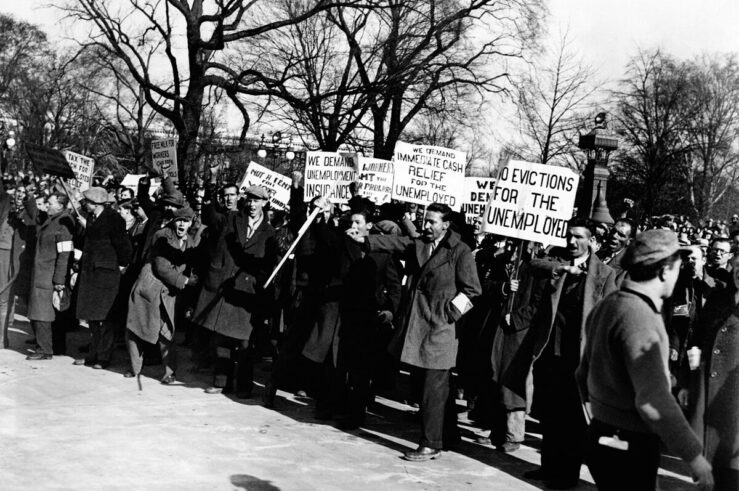Comes now a comment from the incomparable Henry Manne on my earlier post about whether I should buy “Sandinista!” by the Clash (See, Art and Politics post):
“It is truly déjà vu all over again, and the doubling up is appropriate because the issue I have reference to took place mainly at the University of Chicago in the late 40s or early 50s. The issue was not playing disapproved musicians; it was teaching or reading the poetry of one Ezra Pound. Pound is by some accounts (I have no wisdom on this matter at all) one of the greatest poets of the 20th Century. He was also the most famous traitor to America in World War II, when he offered his services to the Nazis but mainly did broadcasts to US troops on behalf of the Italian Fascist regime. He was by all accounts a bit of a nut case (to use the technical term), and that undoubtedly saved his life. There were a great many Americans who wanted him hung but also a great many who thought that he was simply too great an artist to end up at the end of a rope, at least if it was not self-tied. The compromise (and it was one of those political compromises that stops issues but certainly does not resolve them) was to find an American court to find him insane so that he could be institutionalized. Apparently his life was not too harsh, and his many admirers visited him regularly. Nonetheless he was a traitor and a really vicious anti-Semite, so what was the heavily Jewish University of Chicago circa 1950 to do? Well, in typical U of C fashion, they punted. That is, the issue you discuss in your blog was examined at length (some would say far to great a length) until finally everyone got tired of arguing about it, and the issue simply disappeared. I do not know to this day if there was any pressure on a professor not to teach Pound’s poetry. That would have been very unusual at the U of C in the era long before PC reared its ugly head. Of course, after a while World War II was forgotten, anti-Semitism became almost de rigueur and treason to America became almost a badge of honor. But then, aesthetic standards may have changed too, and, for all I know, no one is even interested in Pound’s poetry today.”




